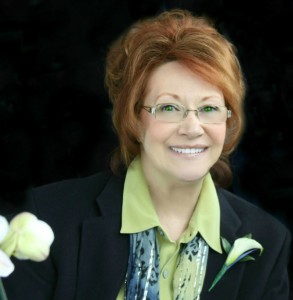BIO

.
Adele Kenny, founding director of the Carriage House Poetry Series, and poetry editor of Tiferet Journal, is the author of twenty-four books (poetry & nonfiction). Her poems, reviews, and articles have been published worldwide and have appeared in books and anthologies from Crown, Tuttle, Shambhala, and McGraw-Hill. She is the recipient of various awards, including two poetry fellowships from the NJ State Arts Council, first place Merit Book and Henderson Awards, a Merton Poetry of the Sacred Award, a Writer’s Digest Poetry Award, and the International Book Award for Poetry. She also received a Women of Excellence Award for her work in the Arts And Humanities and the 2014 Distinguished Alumni Award from Kean University. She has read in the US, England, Ireland, and France, and has twice been a featured poet at the Geraldine R. Dodge Poetry Festival. www.adelekenny.com
.
.
.
What She Means
Even if the asters were permanent, the last crickets under the pine still fully alive, fully present—the balance not so easily tipped. Even had she kept what she couldn’t, it was always this: what stayed broken—literal dust and the way light thinned.
She thinks of the house in the mountains, how rain settled for days in the hollow between two hills—without thunder, without stopping—the way rain sounded then, the field’s dim glistening. She remembers how wet earth pushed its cold up, the creek overfilled, fast over fallen leaves, the leaves singing—how it feels (that wanting to go home)—the mortal act of are and are not. That simple, that clear.
Now it’s about what lasts, the way nothing ends without pouring itself out—chrysanthemums shattered by rain, light that lingers in lessening light—what she means when she says my life is not this or that she is not really here.
.
Just Perhaps
(After Ophelia by John Everett Millais)
Buoyed by her dress, she barely breaks the water’s surface—arms outstretched, palms upturned. Pansies float above her skirt. There are daisies on the glassy stream, and, there (to the left, above her head), a bird on the pollard from which she jumped or fell. Broken willow, broken bough.
And just perhaps, as Hamlet’s mother said, she’s still alive and singing—see, her mouth is open, and her eyes; and just perhaps, she doesn’t know how close to death she is—or why this painting makes me think of you. Your death was not offstage the way Ophelia’s was (the ladder placed, the rope around your neck); nor was the way you parted from yourself, the silent swinging—only air beneath your feet.
*****
74 total views , 1 views today
